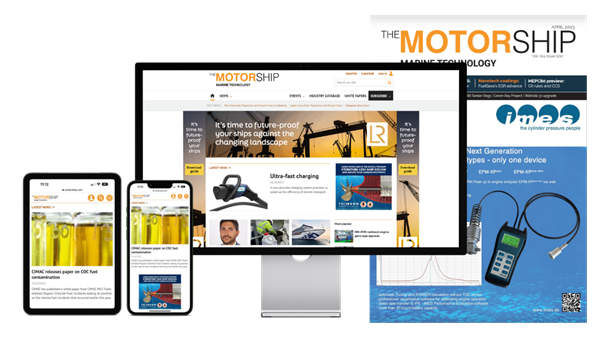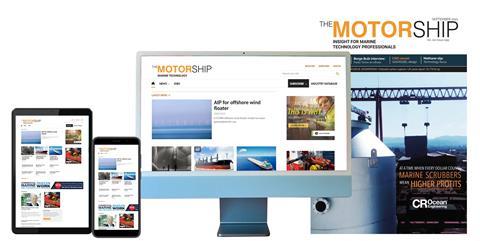- News
- Subscribe

Get full access to The Motorship content
Including the digital magazine, full news archive, podcasts, webinars and articles on innovations and current trends in the shipping industry.
- Expert analysis and comment
- Unlimited access to in-depth articles and premium content
- Full access to all our online archive
Alternatively REGISTER for website access and sign up for email alerts
- White Papers
- Industry Database
- Events

Propulsion & Future Fuels Conference 2025
The Motorship’s Propulsion & Future Fuels is the leading international conference on powering shipping’s emissions-cutting ambitions.
The 2025 Conference will take place from 25th - 27th November in Hamburg, Germany and will offer a meeting place to learn, discuss and knowledge-share the latest developments in efficient power and propulsion technology plus alternative low flashpoint and low carbon fuels.
Click here for more information
The transition to battery-electric propulsion

Mærsk Mc-Kinney Møller Center for Zero Carbon Shipping has conducted a study on the feasibility of battery-electric propulsion across different vessel sizes and types.
Despite potential benefits, the adoption of battery-electric propulsion in deep-sea shipping faces several challenges. These include the limited energy storage capacity of current battery technology, the need for significant infrastructure investments, and the potential impact on cargo capacity.
The study focused on identifying the technical and economic barriers to battery-electric propulsion, assessing its viability in different vessel segments, and comparing its environmental impact to traditional fuel sources.
Continue this article…
Already subscribed? SIGN IN now

Register for a FREE one-month trial to continue this article
Want to read more before deciding on a subscription? It only takes a minute to sign up for a free account and you’ll get to enjoy:
- Weekly newsletters providing valuable news and information on the shipping sector
- Full access to our news archive
- Live and archived webinars, podcasts and videos
- Articles on innovations and current trends in the shipping industry
- Our extensive archive of data, research and intelligence
Get more free content sign up today
Ready to subscribe? Choose from one of our subscription packages for unlimited access!

